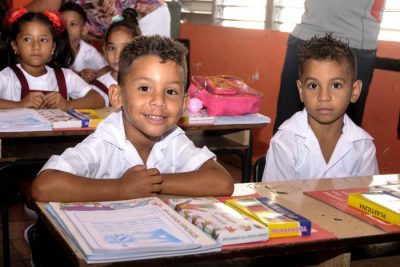Despite Limitations, Cuba’s State Budget Maintains Its Eminently Social Focus
Plans for 2020 guarantee basic services in education, health, culture and sports, as well as the implementation of social policies, national defense and internal order

The planned budget for 2020 is based on principles of conservation and rationality in expenditures, and maximizing income, mobilizing all untapped potential that exists in the economy, stated Vladimir Regueiro Ale, first deputy minister of Finances and Prices, during a press conference yesterday.
U.S. harassment, financial persecution, and intensification of the blockade continue, he noted, requiring a detailed analysis of the use of funds and purpose of allocations, to avoid unnecessary expenditures.
During the year, he reiterated,
“Budgetary modifications to increase expenses will only be made based on adjustments in the economic plan, approved levels of activity and central government decisions. Likewise, salary expenses and workforce taxes are defined as guiding indicators with specific destinations in the budgeted sector.”
Regueiro insisted on item by item evaluation of the budget, based on financial records, to allow for timely decision making, in addition to the need be more discipline and rigor in collecting information and accounting.
Despite limitations, he emphasized,
“Cuba’s state budget maintains its eminently social focus, guaranteeing basic services in education, health, culture and sports, as well as the implementation of social policies, national defense and internal order.”
Also ensured is continuity of partial salary increases in the budgeted sector and of Social Security pensions.
Income is projected to reach 66.291 billion pesos, representing 11.5% growth.
Planning has taken into consideration the substantial increase projected in retail trade circulation, along with increased efficiency, especially in the state enterprise sector, which provides 85% of total income. Tax revenues also play a key role, accounting for 74% of collections.
Achieving these results will require:
– Discipline in monthly contributions by economic actors, allowing for consistent liquidity.
– Strengthening control and systematic supervision of municipal and provincial tax administrations.
– Continuing to promote a tax culture, with emphasis on the importance of contributing and, in turn, increasing the rigor of measures taken for non-compliance.
Income
Tax revenues should reach 49.348 billion pesos, representing 12% growth.
Taxes on sales of goods and services, which account for 37% of total gross revenue, are projected to grow by 14% and 25%, respectively.
Contributions based on earnings provide 19% of gross income and are expected to increase 4%, exceeding 12 billion pesos.
Taxes on the use of labor and Social Security contributions should increases as a result of salary and pension raises.
Funds generated by territorial contributions for local development are projected to reach 1.144 billion pesos, similar to 2019.
The contributions of non-state forms of management represent 13% of total income, with estimated growth on the order of 12%.
Of this total, 50% is contributed by self-employed workers, 17% by non-agricultural cooperatives, and 33% by other forms of non-state management.
Tax measures projected for 2020:
– Personal income tax for athletes with contracts abroad.
– Simplification of personal income tax rates and the payment process for individual agricultural producers. In this case, the progressive scale is replaced by a tax rate of 5%.
– Updating of activities taxed under the simplified regime.
Addressing untapped potential for revenue in 2020, Regueiro emphasized eliminating delays in the filing of affidavits, as well as non-payment of taxes on earnings and personal income, plus accumulated tax debts and evasion by under-declaration associated with sales of homes and vehicles by individuals.
Similarly, he stressed the importance of involving workers in analysis of tax compliance at the level of every entity, basic enterprise unit, and site of non-state economic activity.
Expenses
Deputy Minister of Finance and Prices Maritza Cruz emphasized that the budget’s execution must be based on several key premises, including avoiding superfluous and non-priority expenses; maintaining rigorous control of public spending; making efficient use of material and financial resources allocated; as well as strengthening steps taken to save energy and rationalize expenditures for basic services such as telephone, water, and gas, among others.
Total expenditures of 73.186 billion pesos are planned for 2020, implying an increase close to 10.5%. The most significant areas contributing to this increase are running expenses, which support basic social services; subsidies for housing construction and repair; as well as salary increases in the budgeted sector.
An important amount is allocated for investments, with priority given to the housing program; infrastructure, including works to expand use of renewable energy sources; tourism; works to mitigate the impact of drought; and projects in the social sectors of Education and Health.
The Social Security budget is fully funded to support some 1,680,000 beneficiaries, 96% devoted to pensions based on age, disability or death of a head of household.
*
Note to readers: please click the share buttons above or below. Forward this article to your email lists. Crosspost on your blog site, internet forums. etc.
Featured image is from Endrys Correa Vaillant

